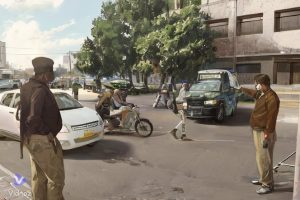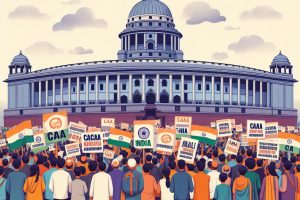‘The dreadful experience of the last decade has shown me that I will never receive just treatment from the American government. Now, my only hope is that my own country will listen.’

(The writer is a Pakistani citizen currently held by the US military at Guantanamo Bay)
My crime was that I spoke Arabic. When the Americans were offering ransom money for handing over Arabs to them back in 2001, someone accused me of being one and my fate was sealed. I spent two years being tortured by the CIA in secret prisons in Afghanistan before I was flown to Guantanamo. Here, I have gone through 12 long years of imprisonment without charge or trial. That’s why I started my hunger strike.
For 12 years, I have been living a life of injustice, suffering through torture and insults. In those same 12 years, some of you who were students became doctors; others became generals, pilots, or perhaps, even ministers or the president of a country. But my life has stood still: I have even been prevented from improving myself in the simplest of ways, by studying. All I can do to protest my detention is to go on a peaceful hunger strike. For that, I am punished through force-feeding. Twice a day, a team of guards in riot gear barges into my cell to take me to be force-fed. They pin me to the floor and sit on my back causing extreme pain, before hauling me out of the cell to the force-feeding room. There, they strap my head, arms and legs to a chair and push a tube down my nose and throat into my stomach. Two hours later, they unstrap me and throw me back into to my cell — often pushing my face into the dirty hole, which passes for a toilet in my cell.
One day, in front of them, I began to vomit blood all over my clothes and the cell wall. The cruel team of guards broke into my cell, hauled me up and pressed down hard on my stomach. When I was pushed upright, I vomited the rest of the blood over the floor of the cell and the floor of the corridor in the block. They then took me to the force-feeding chair and carried on with their barbaric practices. I call it the torture chair. It allows them to strap my limbs tightly with cords in seven places. On that occasion, there was still bloody vomit all over me when they carried out their awful work. Another time, an inexperienced nurse who had not inserted the force-feeding tube too many times before, inserted the tube into my nose, pushing hard. I was choking, but she carried on pushing the tube until it came out of my mouth. She was clearly frightened when she saw the awful state I was in. I started to cry and began to convulse. Because of repeated forced feedings, my throat and stomach have become dreadfully inflamed.
The only reason they treat us so cruelly in this way is to put pressure on the hunger strikers so that they can end their strike. But striking is the only means we have left to send the world a message about our fate. I have not seen my family since my arrest, and when I occasionally speak to them on the phone, the guards start by reading out a list of things I am forbidden to discuss, which takes them 10 minutes to get through.
What else can I do? I have never held my own son in my arms, who was born after I was kidnapped. He will soon be a teenager. The dreadful experience of the last decade has shown me that I will never receive just treatment from the American government. Now, my only hope is that my own country will listen. A few months ago, I learnt that my grandmother had died without me being able to say goodbye to her. I have lost aunts, uncles, brothers and friends in the time I have been held here. After 12 years, the memories of those who remain — my children, my wife, my parents and close friends — are becoming fainter by the day. I refuse to let that happen, so I will keep asking anyone who holds justice dear to support me, so I can return to my family and friends.
The letter was first published in Express Tribune.






